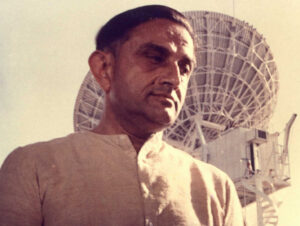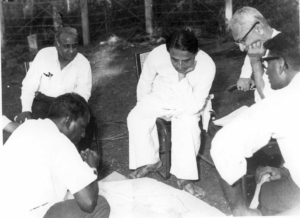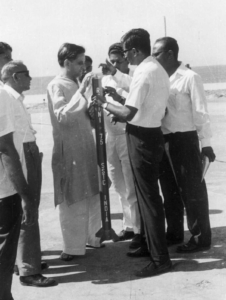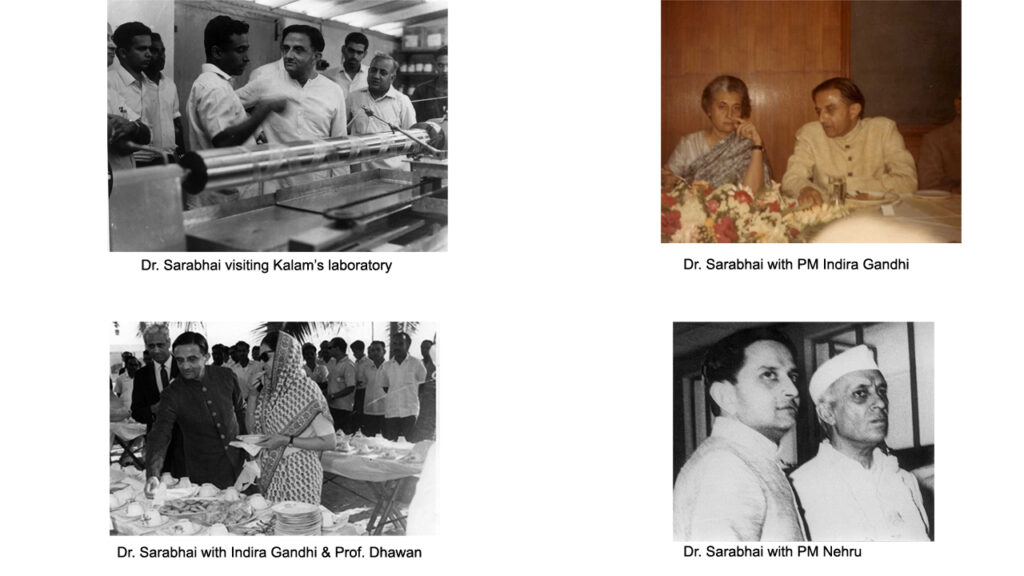
At a time when India celebrates the success of Chandrayaan-3, IndiGlobal Media Network decided to roll back the years to remember the man who first harnessed space technology for national development with exclusive photos of Indian physicist and astronomer Vikram Sarabhai one of India’s most dynamic and endearing visionaries
T P Venu
Photos Courtesy: Vikram Sarabhai Archives, Nehru Foundation for Development, Ahmedabad

The latest news of Chandrayaan-3 is Pragyaan the rover exited the lander and took its first steps on the Moon. What is more, the laser detector on board has found a host of chemicals, including sulphur and oxygen on lunar soil. Vikram Sarabhai, the father of Indian space programme would have been mighty pleased at the feat for India has come a long way since the days when Indian scientists loaded the first communication satellite APPLE from the Guiana Space Centre onto a bullock-cart. The year was 1981.

The credit of placing India on the international map in the field of space research goes to Vikram Sarabhai. He passed away in 1971, but he sowed the seeds of space research. It was Vikaram Sarabhai who convinced the then Prime Minister Jawaharlal Nehru about the need for a space programme and handpicked young engineers across the country. Writing in the book ‘ISRO-A Personal History’ ISRO scientist R Aravamudan recalls: In 1962, as a young 24-year-old scientist at the reactor control division of the Department of Atomic Energy (DAE) in Trombay he heard about Vikram Sarabhai, founder of Physical Research Laboratory (PRL) in Ahmedabad who was looking out for volunteers to set up a rocket launch pad in Kerala.
 He joined Vikram Sarabhai like many others and was one of the first young engineers to join Sarabhai. Vikram Sarabhai sent young engineers to the US to train at NASA before they were relocated to Trivandrum. Right from Dr Abdul Kalam to several scientists who worked at ISRO in the 60s to the 70s were touched by the charm and enthusiasm of Dr Vikram Sarabhai.
He joined Vikram Sarabhai like many others and was one of the first young engineers to join Sarabhai. Vikram Sarabhai sent young engineers to the US to train at NASA before they were relocated to Trivandrum. Right from Dr Abdul Kalam to several scientists who worked at ISRO in the 60s to the 70s were touched by the charm and enthusiasm of Dr Vikram Sarabhai.
 The government of India recognised Sarabhai’s service to the nation by awarding him with the country’s third highest civilian honour, Padma Vibhushan, posthumously in 1972.
The government of India recognised Sarabhai’s service to the nation by awarding him with the country’s third highest civilian honour, Padma Vibhushan, posthumously in 1972.

